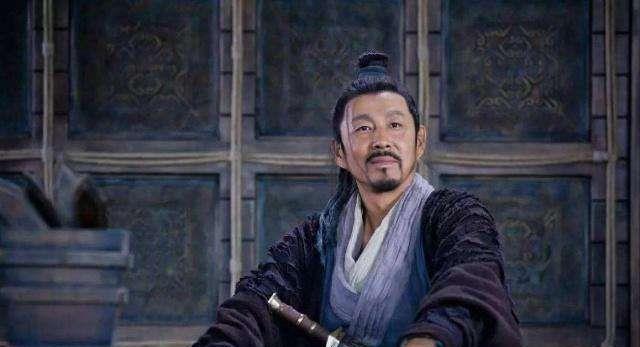Introduction: After leading the rise of the Xiongnu, why did Mao Dundan decline after besieging Emperor Liu Bang? The Han Dynasty was strong, and the nomadic hunting economy was fragile
The Xiongnu are the northern nomads who have suddenly risen in our country, and have had an extremely far-reaching impact on the Central Plains regime and the history of our country, so how did the Xiongnu rise up and become powerful? Let's first briefly understand the rise and fall of the Xiongnu and the Han Dynasty after their rise.
The Xiongnu rose in the period of Mao DunDan Yu, the Xiongnu cavalry broke through the Eastern Hu King in the east, defeated the Yue clan state in the west, and the northern and Ding Zero and other five tribal small states, the Xiongnu unified the northern plateau region, so that the people of the bow were one, the Xiongnu became a regional power, and the national strength was in its heyday; but in the Han Dynasty, it had just experienced the chaos at the end of the Qin Dynasty, the Chu-Han dispute, the economic ruin, the weakening of the armed forces, and the containment of the diplomatic princely states, resulting in the Inability of the Han Dynasty to organize a strong military force to attack the Xiongnu, especially Liu Bang's carelessness and light enemies. After being seduced by Mao Dun Shan Yu, he was called Pingcheng, which is the famous "Siege of Bai Deng" in history, and Liu Bang escaped through Chen Ping's offer to get out of the way of making peace with Nagong.

After that, during the periods of Lü Hou, Emperor Hui of Han, Emperor Wen of Han, and Emperor Jing of Han, the Han Dynasty had been following Liu Bang's customized policy of peace with the Xiongnu in order to strive for a period of peace to recuperate, resume production, and increase economic and military strength; in fact, although the Han Dynasty paid tribute to the Xiongnu and made peace and customs clearance to benefit the Xiongnu, this did not prevent the Xiongnu cavalry from harassing the border from time to time and plundering population and property.
During the period of Emperor Wu of Han, after the development of the Han Dynasty through the rule of Wenjing, the economic, political, and military strength to confront the Xiongnu was very successful, especially the Han Dynasty's Ma Zheng construction was very successful, established a strong cavalry team, had far beyond the raiding ability, and two generals, Wei Qing and Huo Qiyi, turned out to be born, so Emperor Wu of Han took the opportunity to launch a large-scale war against the Xiongnu, recovering Henan, Hetao, Hexi regions, and even Huo Wentai's surprise attack on the main force of the Xiongnu, and thus the Western Han Dynasty basically solved the Xiongnu's border problems.
The Han-Hungarian War lasted for more than forty years, under the strong and continuous blows of Emperor Wu of the Han Dynasty, the Xiongnu population and livestock suffered huge casualties, and in the absence of a royal court in the shogunate, they were forced to migrate to the northwest, and the nomadic people who lived by water and grass lost the rich land of water and grass, and the Xiongnu were increasingly decaying.
In order to avoid war and obtain food and living materials from the Central Plains, the Xiongnu have been asking for peace with the Han Dynasty for several generations, in fact, the Xiongnu are also in order to make peace with the Han Dynasty to continue their rule, but at this time, the Han Dynasty has long grasped the initiative of the war, and the initiative of the relatives is naturally the Han Dynasty's calculation, from the beginning of the Yi Zhi Shan in the later period, although repeatedly interceding, but the Han Dynasty has never agreed to this request, It can be seen from this that the Han court did not want the Xiongnu regime to become strong again.
The Xiongnu lost the traditional pasture land, such as Henan, Hexi, Yinshan, Hetao and other water and grass most abundant grazing land, the economy fell on the verge of collapse, at the same time, the Xiongnu forces in order to compete for the throne made the contradictions more intense, resulting in the Xiongnu regime lost its strong integration power, but also lost the opportunity to make a comeback; after the Japanese kings led the people to surrender to the Han, the Western Han Set up the Western Regions Protectorate to effectively administer parts of the areas controlled by the Xiongnu and the western regions, completely cutting off the western region's role in the supply of materials to the Xiongnu. Finally, the Huns completely decayed.
There are many reasons for the Xiongnu's decline from strength to decline, the strength of the Han Dynasty, and the military attack on the Xiongnu for decades is the main factor in its decline, but the most basic factor in the decline of the Xiongnu is still due to its internal reasons, the fragility of the nomadic hunting economy affected by the climate, the period of good pastures makes its economy in trouble, the supply in the western region is cut off, the failure of military strategies and the internal contradictions caused by the struggle for the throne alone are the reasons for the decline of the Xiongnu regime.
References: "History", "Book of Han", etc.